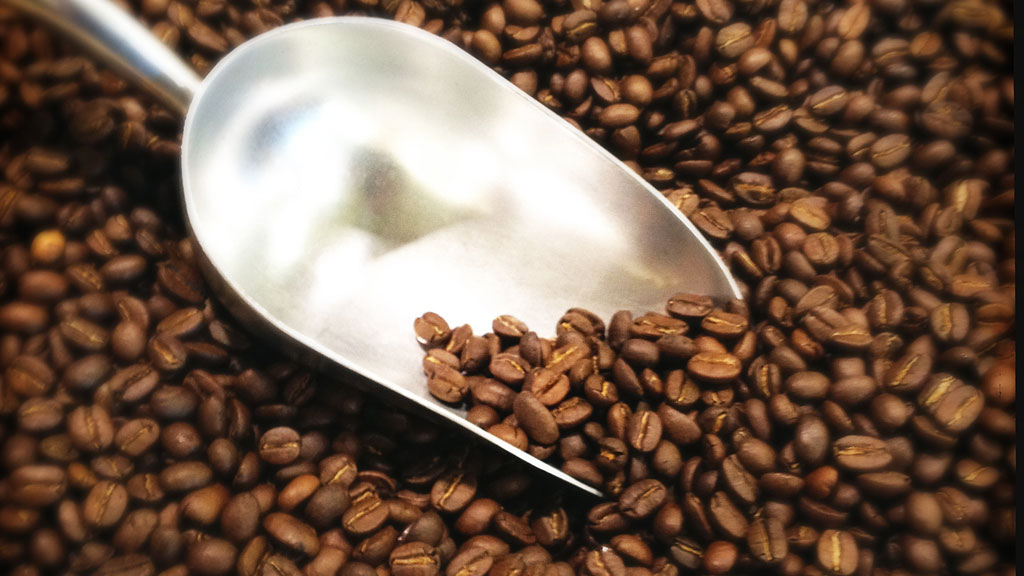Coffee dregs: world supplies threatened by climate change
Wake up and smell the coffee: it might not be around that much longer. Scientists are warning that climate change means supplies could dry up in a matter of decades.

At last, scientists believe, a threat which could wake people up to the realities of climate change. The warming planet is threatening the survival of the world’s most popular coffee crop, with yields already at a 34-year low. It could all start running dry within decades.
According to this week’s New Scientist, a coffee drought could be imminent. That is because the arabica plant, which is used for around two-thirds of the coffee beans used around the world, is especially vulnerable to the changing climate.
Growers have already been hit by the erosion of forests and higher than average rainfall, which has brought a huge increase in pests and fungal diseases – threatening their long-term survival.
Experts from the Royal Botanic Gardens at Kew warned last year that changes in weather conditions would have a “profoundly negative effect” on coffee plants. According to the society’s Aaron Davies, “the worst case scenario is that Arabica coffee ceases to exist in the wild in 70 years”.
Bean and gone
The arabica bean is preferred over the other main variety, robusta, because of its vastly superior flavour. Baptiste Kreyder, head barista at London coffee roastery Caravan, uses varieties grown at especially high altitudes.
“The milder climate brings a lot of acidity and a lot of flavour – that is where the quality and the fruitiness comes from, and that is what makes it a much better coffee,” he said. “The fact that it is endangered by climate change is very important.”
His company works with a very small group of farmers, and pays them between two and four times as much a the going rate for fairtrade certified coffee, along with a commitment to good agricultural practices.
The price paid by the world’s biggest firms, he suggested, was not enough. “The price does not guarantee farmers a sustainable income for years to come, and it won’t help them adapt their production to a changing climate”.
In some countries, farmers are taking matters into their own hands. In the Mexican region of Chiapas, three producers’ co-operatives have just organised their second annual summit to discuss coffee and climate change.
They stressed that the coffee crop was the main source of income for hundreds of families, giving them their best chance of a reasonable standard of living. Farmers were trying to search for cooler, higher land, but not all of it is suitable for planting coffee.
The growers have set up a mutual insurance fund to pay out compensation for crop failures, while in Guatamala, the National Coffee Association is working with the government to provide farmers with subsidised pesticide, after production was hit hard by aggresive outbreaks of rust fungus, spread rapidly after a prolonged spell of heavy rain.
Price rocket
Coffee specialist Peter Baker, from CABI, which advises farmers in developing countries, told the New Scientist that the sensitive coffee plants were simply not getting what they need to thrive.
“Coffee is very demanding”, he said. “It needs dry weather to build up buds and then rain to trigger flowering. But if it then rains too much, the fruit doesn’t set.”
Given the very real dangers ahead, scientists and coffee experts are trying to come up with ways of adapting: developing new strains of plants, perhaps, that could grow at higher altitudes, or breeding finer varieties of robusta or other species of coffee.
Baptiste Kreyder worries that even if good quality coffee can be given a new lease of life, a smaller range of crops would drive prices sky-high. “And not all mountains can be suitable for growing coffee”, he said. “Some are too steep, or limited by road access or being too far from washing stations where the beans are treated”.
For many communities, the crop is simply about survival. Globally, the industry employes twenty six million people, many of them in developing countries which depend heavily on the coffee trade, with exports worth more than ten billion pounds a year.
The New Scientist suggests that this could be the one issue that wakes people up to the realities of climate change. It is not simply your morning latte that is under threat if the experts are right, and coffee – quite literally – dries up.
-
Latest news
-
‘Russian aggressions have never pushed Georgia to deviate from its own path’, says Georgian President5m

-
Why is Georgia’s ruling party so intent on adopting ‘foreign influence’ bill?5m

-
Trump’s lawyers try to paint Michael Cohen as liar out for revenge at trial3m

-
England’s schools told not teach gender identity2m

-
Slovakia PM shooting: Suspect charged with attempted murder3m

-




